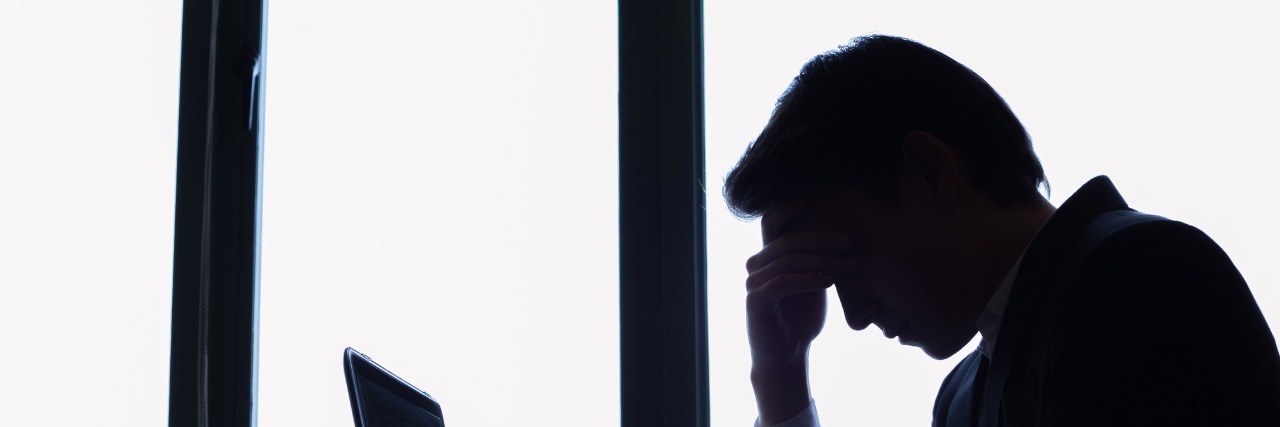In a June 2016 article by Sarah Schuster, she describes what it means to have “high-functioning” anxiety. People related to it instantly. I am one of those people. I skated through college as an over-achiever. I was involved with the student government, the newspaper, did research, wrote a book, and the list goes on and on. But what happens when your high-achieving college years dissipate and you must join the real world?
A growing amount of researchers are starting to see what can be described as “post-graduation depression.” With growing underemployment, questions about the affordability of healthcare, and a lack of companies guaranteeing benefits, many people are entering the workforce unsure of their direction.
I graduated from college in May of 2015, and the next morning I was on my way to Florida to start an unpaid internship with a mental health nonprofit called To Write Love on Her Arms. I quickly became immersed in the culture, looking for that next big thing to attach myself to in the absence of my college busywork. My anxiety needed the high that came with new challenges and feeling as if I were more important than I am. In the next few months, I started an online literary magazine with friends, joined a junior board for a sexual assault awareness nonprofit, and began trying to write a book on my experiences with mental health. I plunged myself into work that I felt was “noble,” and people affirmed me.
I spent the next year in Florida volunteering here and there with To Write Love on Her Arms and working full-time as an AmeriCorps college readiness coach. By the following summer, my AmeriCorps year was ending, a job I needed fell through, the magazine folded, and I was left to run back home with my tale between my legs. My anxiety rocked up to a previously unreached level. I doubted my abilities. I doubted my worth. I doubted my experience.
During the last six months, while working to get back on my feet, I have learned three things about my post-graduation self and combatting my anxiety:
1) My worth is not measured by the number of tasks I do or do not complete.
2) The perfect job takes a lot of preparation to get; otherwise everyone would have one.
3) Patience really is a virtue.
Throughout the last six months, I’ve had to learn hard lessons about my identity, oftentimes tearing down parts of my identity that weren’t healthy or weren’t constructive. This includes pushing back against my anxiety. After the magazine folded, my roommates sat me down and reassured me my self-worth was not measured by the magazine’s success. While it took me months to fully embrace the idea, they were right. The hardest part to accept about being a creative is that you are going to fail more than you succeed. However, your successes will be so much larger than your failures will be. If you keep your confidence, you will usually fail up.
I also had to learn that having a good job, one that pays well and gives benefits, is difficult to find. The people who in their early-20s do have these jobs are the outliers, not the norm. I am still looking for that perfect job, but it doesn’t mean I can’t appreciate the job I have now.
The hardest lesson I’ve had to embrace is that the old saying “patience is a virtue” is actually true! For somebody with “high-functioning” anxiety, the phrase was never conducive of what I wanted to accomplish. It was better left in a kitchen drawer, left beside other tools I would never use. However, sometimes allowing yourself to slow down, sit down, and daydream is the best way to cope with anxiety. Pushing yourself to just give a few minutes a day to think is the best remedy for a busy mind. I also know when I decide to launch the next big project, I will be prepared because I have given myself the patience to research thoroughly and slow down my need to impress and achieve. The next project won’t be simply about achieving but doing good for the world.
Let me be clear. I still struggle with my anxiety. I still overcomplicate my schedule and take on too much, and sometimes I break down. However, I’m learning my limits. I’m learning when to take my foot off the gas. I’m learning the accelerator isn’t always the best option. Sometimes, self-care in the middle of a project is the best option. You must give yourself grace and have a moment of courage and do what is best for your health. Most importantly, make sure you don’t get caught up in the rat race, or if you do, make sure you control the terms. That is the true way to succeed in your early 20s.
We want to hear your story. Become a Mighty contributor here.
Thinkstock image by kieferpix

